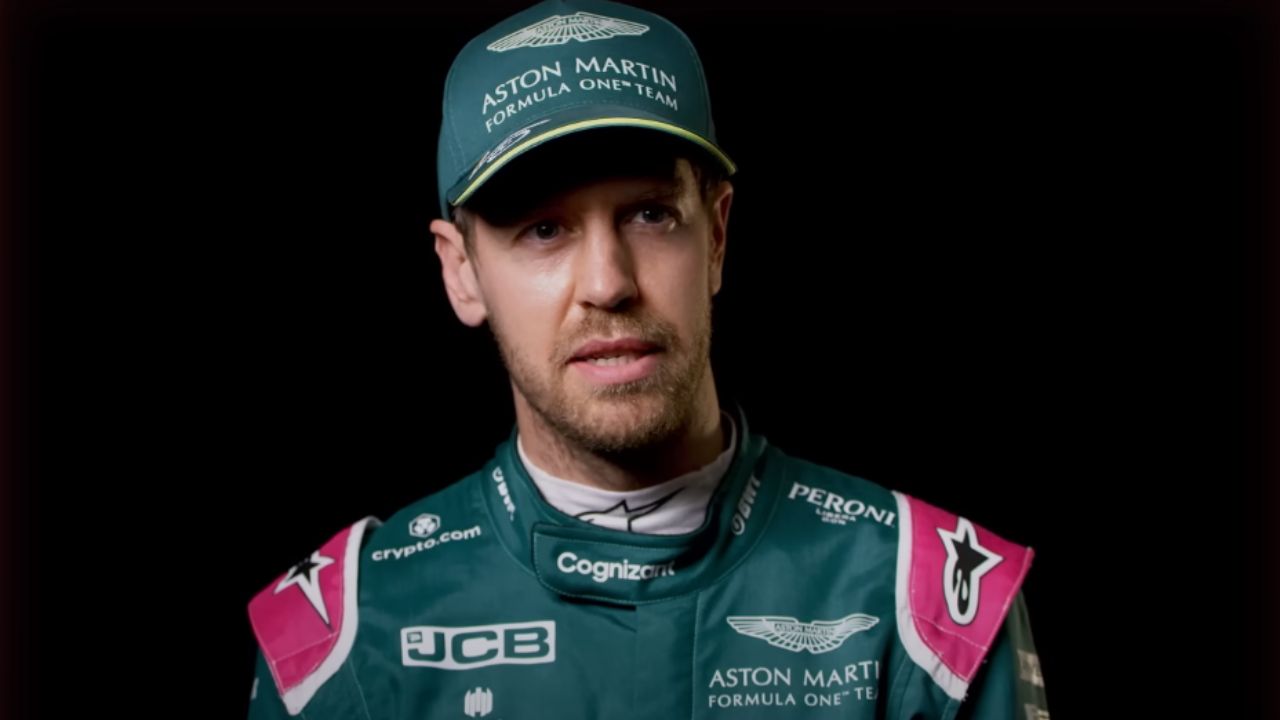Sebastian Vettel, once the enigmatic force stirring controversies at Red Bull, has undergone a remarkable transformation. Helmut Marko, the seasoned Red Bull advisor, recently drew parallels between Vettel’s analytical prowess and the legendary Niki Lauda. This unexpected comparison sheds light on Vettel’s evolution from a ruthless competitor to a driver whose technical acumen mirrors that of his racing idol. Let’s delve into the intriguing dynamics of Vettel’s career, the Lauda connection, and the defining moments that shaped the narrative.
In the annals of Formula 1, Sebastian Vettel’s dominance with Red Bull marked an era stained with on-track clashes and team dynamics that divided fans. The rivalry with Mark Webber became synonymous with Red Bull’s golden years, leaving a trail of controversies, none more notorious than the ‘Multi 21’ incident in Sepang.
However, time has woven a different story for Vettel. The German driver, once perceived as a stern competitor, has gradually earned admiration and respect. Helmut Marko’s recent comparison to Niki Lauda underscores the layers of transformation Vettel has experienced, both on and off the track.
Lauda Connection: Admiration and Influence
Sebastian Vettel’s admiration for Niki Lauda transcended mere fandom; it became a guiding force in shaping his approach to Formula 1. Lauda’s passing in 2019 prompted a heartfelt tribute from Vettel, emphasizing the late legend’s authenticity, straightforwardness, and passion for the sport. Now, as Marko draws parallels between Vettel and Lauda, it unveils a deeper connection beyond the surface.

Marko’s Insights into Vettel’s Analytical Approach
Helmut Marko’s insights into Vettel’s analytical approach shed light on the German’s technical excellence. Drawing comparisons to Lauda’s meticulous focus on the intricacies of the car’s performance, Marko commends Vettel’s ability to capitalize on technical nuances. This trait, often attributed to Niki Lauda, served as a cornerstone for Vettel’s success during his championship-winning streak with Red Bull.
Vettel’s proficiency in understanding the intricate details of the car’s dynamics allowed him to outperform his teammate, Mark Webber. Despite Webber’s undeniable talent, Vettel’s analytical approach enabled him to stay ahead throughout an entire season. The Red Bull advisor highlights Vettel’s knack for managing technical options and extracting optimal performance, making him a formidable force on the track.
Teammate trouble in Turkey! 💥
Sebastian Vettel and Mark Webber came together at the 2010 #TurkishGP! 🇹🇷#SkyF1 | #F1 pic.twitter.com/j820KLN4T8
— Sky Sports F1 (@SkySportsF1) August 25, 2020
The rivalry between Vettel and Webber reached its zenith during the infamous ‘Multi 21’ incident at the 2013 Sepang Grand Prix. Webber, in a prime position to clinch victory, fell victim to Vettel’s defiance of team orders, a move that stirred widespread criticism. The fallout from this incident not only strained relations between the two drivers but also left an indelible mark on Red Bull’s team dynamics.
Awkward 😬
Red Bull’s ‘Multi 21’ controversy happened #OnThisDay in 2013#F1 pic.twitter.com/gndhi911cu
— Formula 1 (@F1) March 24, 2020
Turning Point: ‘Multi 21’ and Evolving Narratives
The ‘Multi 21’ saga symbolized a turning point in Vettel’s career. His decision to prioritize personal glory over team orders brought him both backlash and introspection. Vettel later apologized for his actions, acknowledging the repercussions of his defiance. This incident, while controversial, played a role in shaping Vettel’s evolving narrative, prompting him to reassess his approach to team dynamics and sportsmanship.
Navigating Rule Changes and Evolving Tire Regulations
Marko’s perspective on Vettel’s success extends beyond the controversies, emphasizing the German’s ability to excel in the face of rule changes and evolving tire regulations. The advisor highlights Vettel’s adaptability to technical innovations, citing instances from 2009 and 2011. This adaptability, akin to Lauda’s approach, positioned Vettel as a four-time world champion.
Vettel’s resilience and capacity to navigate challenges within the ever-evolving landscape of Formula 1 showcased his commitment to excellence. Marko’s recognition of Vettel’s analytical brilliance reinforces the narrative of a driver who not only learned from past controversies but evolved into a seasoned competitor with a profound understanding of the sport’s technical intricacies.
Niki Lauda’s influence on Sebastian Vettel extends beyond mere comparisons; it signifies a passing of the torch from one era to another. Lauda, known for his analytical mindset and technical acumen, found a reflection of his approach in Vettel. The German driver’s journey from a divisive figure to a respected veteran echoes Lauda’s own transformation throughout his illustrious career.
A Testament to F1’s Ability to Redefine Protagonists
As Formula 1 embraces new challenges and dynamics, Sebastian Vettel stands as a testament to the sport’s ability to mold and redefine its protagonists. The echoes of Niki Lauda in Vettel’s approach signal not just a changing landscape for the driver but a continuation of a legacy that transcends individual rivalries and controversies.






